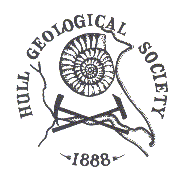

Humberside Geologist no 16
Three fieldwork scenarios
At the Club Night on 8th August 2019 three groups of members of the Hull Geological Society were asked to prepare a different field trip. One group used the HGS risk assessment form as a guide. Here is a report from each group -
A research field trip in a remote part of Scotland – booking
is necessary because travel and accommodation will have to be arranged. The trip
would be strenuous involving steep slopes and slippery rocks. Hard hats, walking
boots and waterproof clothing are essential. DEET, tick removal tools and
gaiters are also required. Collecting from loose material only is permitted
because it is a SSSI. Risk assessment – Always work in pairs and carry a mobile
telephone in case of accidents: the nearest hospital is 2 hours away. Carry
waterproofs, warm clothing and a thermal blanket to avoid hypothermia if the
weather gets wet and cold. There are ticks in the area so take a tick removal
tool and antiseptic ointment; check regularly for tick bites. In hot weather
there is a risk of heat stroke and disorientation so carry plenty of water, a
compass, map, a walkie-talkie and a route card. There is also the risk of
getting lost in a sudden fog. Always wear a hard hat near cliff exposures.
A group field trip to a low coastal
cliff – Hazards identified include driving to the site, tides, sticky mud, the
weather conditions, the terrain and walking distance and availability of a
mobile phone signal to access emergency services if one of the group has an
accident. Potential field trips for the season should be discussed at a club
meeting early in the year to gauge interest and seek suggestions.
The event would be advertised on the
Society website, social media and an abstract would be published. Hard hats are
recommended and the leader must wear one for rapid identification. The following
details need to be confirmed – meeting time and place, duration of the visit,
arrangements for early leaving. Those attending are encouraged to leave their
emergency contact details with the leader; these will be treated as confidential
and destroyed after the event. HGS events should never be cancelled once
advertised – if the event is no longer viable the leader should ensure that
someone is at the meeting place to inform anyone who turns up.
A group visit to a chalk quarry – before the event the leader
should ask the manager or owner for permission to visit the site, check
accessibility and enquire if insurance is required (the HGS has public liability
insurance). Any safety and protective equipment (PPE) requirements must be
followed by the party. Will the party be permitted to hammer the rocks, collect
samples and take photographs? Are there any particular hazardous areas of the
site to be avoided, such as recently blasted quarry faces or sludge lagoons? It
is important to know your audience and explain the reason for the visit and what
might be found. Probably a quarry visit is not suitable for non-members and
booking may be required if the quarry manager specifies a maximum number of
visitors in the party. Perhaps the leader could recommend some suitable reading
before the visit. This information should be accurately communicated to members
through the Programme and e-newsletter, including details of the required
clothing and PPE; meeting place and time; whether they need to bring food and
drink. If possible the leader should prepare a handout for the members of the
group and have a few extra copies available because some will get lost or muddy.
When the party arrives at the site the leader should report in to the manager
and sign the visitors’ book if required. Then the leader should check if there
are any new hazards to avoid.
Members of the party must stay together during the visit.
It is always a good idea for members of the party to have a short
discussion about their finds at the end of the visit. The leader must report to
the site manager that the group is leaving and sign out if required. After the
visit the Society should send a letter of thanks to the owner or manager and if
a report is published it is courteous to send them a copy.
Compiled by - Arthur Speed, Chris Leach, Mike Horne, Philip
Vixseboxse & Rodger Connell.
F